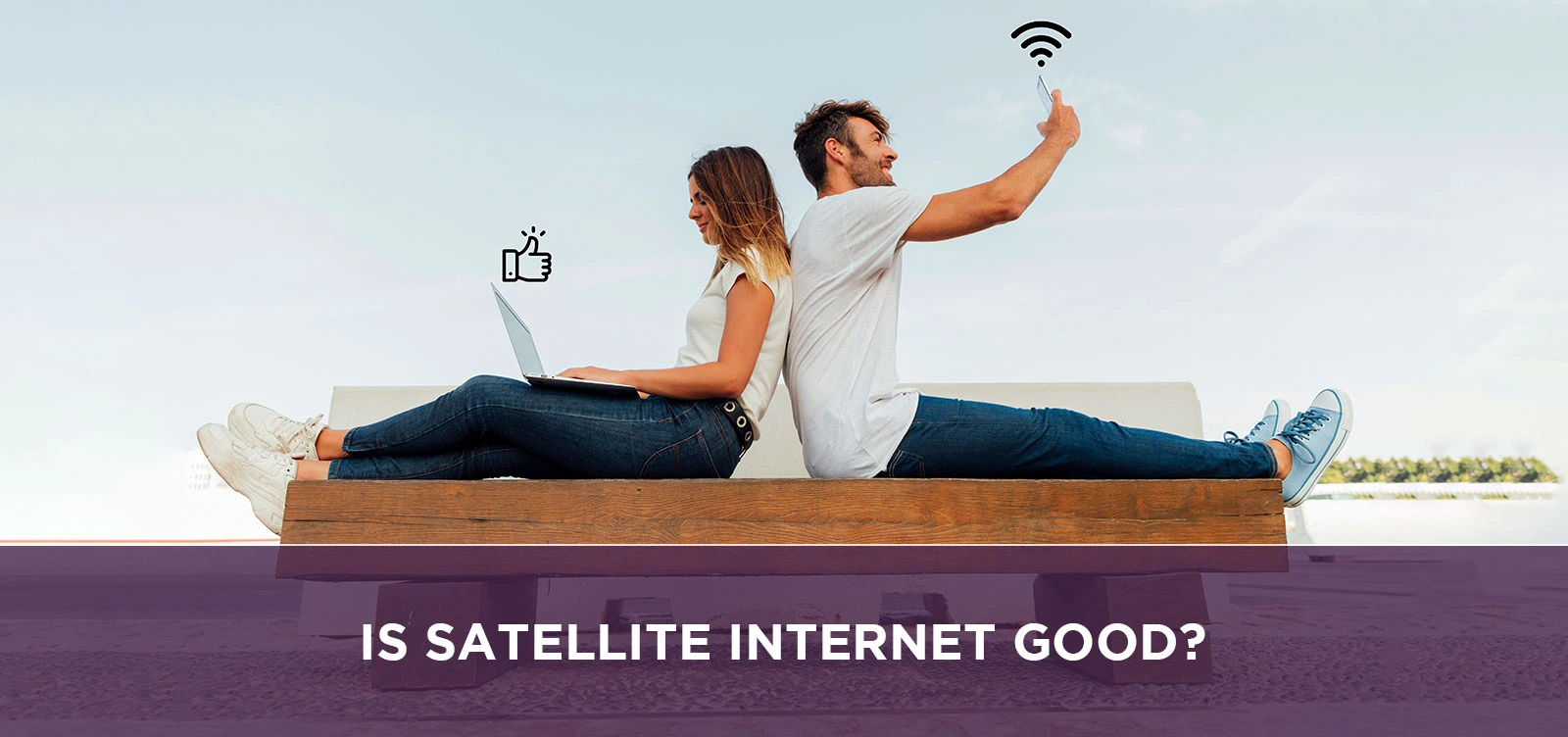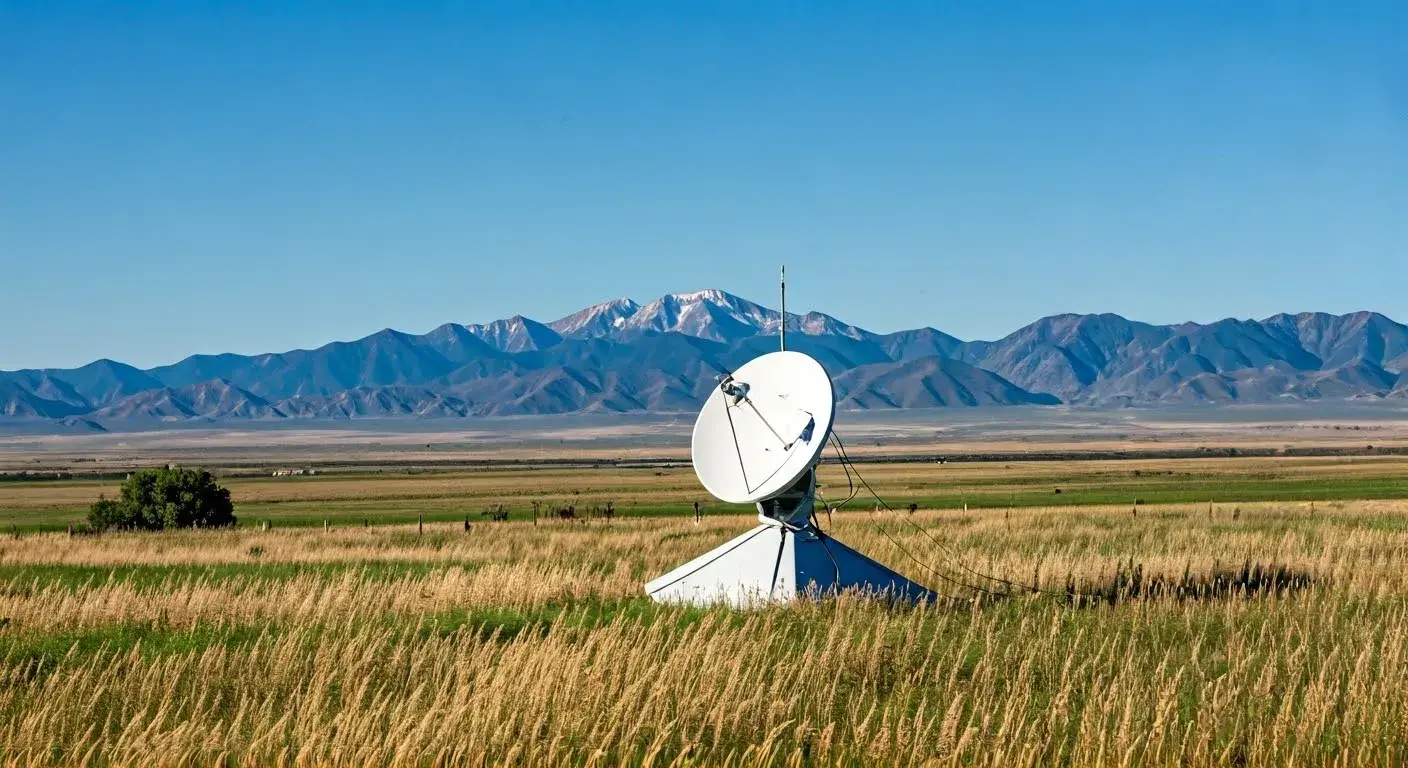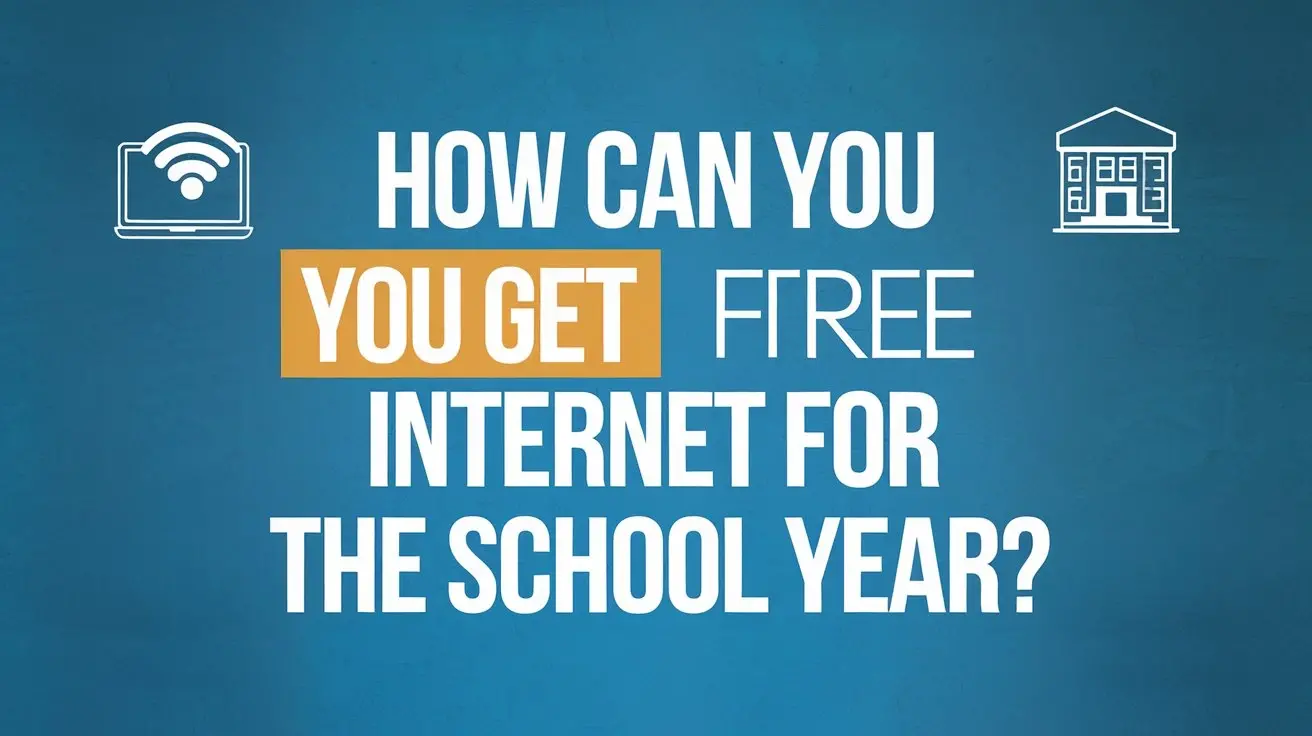
Do you live in a rural location or want to migrate there? Do you find yourself concerned about gaining an internet connection? The good news is that almost anywhere you can get satellite internet service! Still, is it a sensible choice? Although satellite internet may link you wherever not accessible with other kinds of internet, it might also have certain negatives. This essay will go over the advantages and drawbacks of satellite internet service, thus guiding you to decide if it is the best one for you. So let's get right in!
What is satellite internet and how does it work?
Users of satellite internet may access the internet using a signal sent to and received from orbiting satellites. This method uses an internet service provider transmitting a signal to satellites in low or high Earth orbit, which then routes the signal to a receiver dish positioned outside the user's house or company. A modem linked to the receiver dish converts the arriving signal into a usable internet connection. The dish runs on electricity, but Satellite Internet depends not on ground-based infrastructure like phone lines or cable cables.
This fits well in rural places where broadband choices could be few. Having decades of knowledge in the satellite-based communications sector, Viasat and HughesNet are the two main satellite internet providers available in the United States. Although satellite internet may not be as fast as other choices, its broad availability and range make it a great alternative for rural places, particularly with new rivals like Amazon's Project Kuiper and Elon Musk's Starlink offering better speeds and lowest latency. Although satellite internet may be costly and has long-term subscription obligations, for individuals without other access to broadband substitutes it might be a good choice.
Advantages of satellite internet
- worldwide connectivity The ability of satellite internet to provide a network anywhere in the globe at fast speeds—even in far-off and difficult-to-reach areas—is among its most important benefits. Businesses who depend on 24/7 consistent connection regardless of location will find this helpful. Companies may create a safe private network using satellite internet to link many far-off sites across great distances.
- Unlike ground-based infrastructure, satellites do not depend on intricate ground construction to reach the internet service. Companies may therefore lower costly construction and ground connection costs as well as the time needed to lay fiber, which can be several months.
- Low earth orbit (LEO) and medium earth orbit (MEO) satellite constellations let satellite internet provide reduced latencies and more throughputs. Like with terrestrial broadband, users may so access high-speed internet and run low-latency apps.
- Built-in Redundancy: Though terrestrial networks fail, satellite networks provide continuous access. Their natural redundancy and automated backup system help to explain this. Should one satellite fail, many satellites can quickly cover the designated region without disturbance.
- Particularly in catastrophe and emergency assistance situations, satellite technology is a perfect answer for speedy deployment. Systems' modularity makes quick deployment of VSAT remotes possible as well as simple updates. Simply arranging bandwidth to the site and having ground equipment installed allows one to quickly add new distant sites to a network when minimal terrestrial infrastructure exists.
- Add encryption technology to enable satellites to provide a more secure connection than terrestrial networks. This makes it the perfect answer for the military, government, and business (virtual private network) ones.
- In places where terrestrial options are absent, erratic, or just too costly, satellite technology may provide a communications infrastructure. They may also be a stand-alone fix or stretch the edge of terrestrial networks to far-off locations.
- Flexibility: With access to speech and data at high speed anywhere on the earth, satellite internet may be acquired via many portable and mobile devices. For businesses, this is a great benefit as it lets them run their operations including text messaging, video conferencing, and email access among others.
- Satellites with fixed positions in vast oceans, such as those at 180 station locations on the geostationary orbit or specific constellations, offer a stable and sufficient signal to ensure access to voice data and communication services to hard-to-reach areas while minimizing service interruptions.
- Cost-Effectiveness: To satisfy a broad spectrum of communications demands, satellite Internet presents a range of price points. Scalable pricing allows companies and people to create a solution fit for their budgets and needs.
Disadvantages of satellite internet
- the main drawback of satellite internet is its poor speed. Data must first pass from the dish on your home via the satellite before returning down to earth. Latency—that is, delays—can result from this round of journey. Not perfect for real-time activities like online gaming or video conferences, the latency might run from 500 to 700 milliseconds. Bad weather or peak use periods will particularly highlight this, which can slow down your performance even more.
- The second main drawback of satellite internet is its reliance on the conditions of the environment. Strong winds, snow, or heavy rain might disrupt your internet connection or slow it down. If you utilize the internet for business or need in an emergency, this might be negative.
- Expensive: Compared to broadband or DSL, satellite internet is much more costly than other kinds of internet connections. Plan, data use, equipment, and installation costs all affect the cost of satellite internet. It also often includes additional costs for exceeding such restrictions and data limitations.
- Another drawback of satellite internet is usually the restricted data plans and data limitations it usually carries. Data limitations included in most satellite internet services restrict the monthly data use capacity. Once you reach the threshold, you might find decreased speeds or a completely cut-off connection. For consumers who depend on the internet to go about everyday activities, this may be a big problem.
- Latency: As satellite internet has great latency—that is, a delay between data transmission and destination reach—we have discussed. Using real-time apps or playing online games might be challenging with this latency. Long delays between replies make conference calls and video chats challenging as well.
- For satellite communications, there may be several causes of interference including thick cloud cover, trees, surrounding structures, and even birds. Your internet connection may be greatly disrupted, leading to either poor speeds or total service failure.
- Using satellite internet, your connection depends on the network of satellites run by the supplier. Your internet will suffer should anything go wrong with these satellites. Furthermore, the restricted number of accessible satellites implies that the supplier can only help a certain number of people at once.
Factors to consider before choosing satellite internet
For companies running in distant locations or in circumstances where standard internet access is lacking, satellite internet is a great alternative. Still, companies have various things to think about before deciding on a satellite internet supplier. These seven elements should help you to make the selection.
- Developing a rudimentary knowledge of the two primary satellite technologies—1. Broadband Global Area Networks (BGAN) and Very Small Aperture Terminal (VSAT)—help one decide on a satellite operator. While VSAT provides selected bandwidth to several Megabits and supports big numbers of users, BGAN is suited for individuals and smaller teams with fewer bandwidth requirements. Every technology offers advantages; the major decision point for the company should be their necessity.
- Generally speaking, most companies would rather have the quickest networking capabilities available. Nevertheless, the real choice of internet speed depends on aspects like applications and services employed as budget and performance requirements determine. Some businesses, for instance, depend on voice-over-internet protocol (VoIP), which reduces bandwidth while offering low latency, low packet loss, and low jitter.
- The temporal delay felt when a signal must physically go a great distance is known as latency. Latency might start to cause issues depending on the place where satellite internet is serviced. Use quality of service (QoS) or class of service (CoS) technologies to rank certain mission-critical traffic to reduce latency.
- For VSAT satellite communication, there are four radio frequency bands; the most typically used for corporate satellite communication are the Ku and C bands. Ku and C vary mostly in frequency strength. While the C band's lower frequency demands a bigger antenna but is more suitable for adverse weather performance, Ku's higher frequency allows smaller antenna sizes to be employed.
- Knowing your hardware demands and possibilities can help you decide whether you choose to buy or lease gear from your supplier. While leasing may save maintenance costs and the chance of failure, since replacement is frequently accomplished more rapidly, owning equipment may offer commercial or tax benefits.
- Before agreeing to a service, always take satellite internet's dependability and availability into constant mind. Request the Service Level Agreement (SLA), a service contract designed especially to indicate the degree of dependability and availability of the connection.
- assistance: At last take into account the choices of assistance your selected supplier offers. Inquire about their technical support system, reaction speed in the case of an outage, and hardware replacement and repair policies.
Conclusion
For those living or working in distant locations without conventional telecom infrastructure, including fiber cable or phone lines, satellite internet may be a decent choice. Where other kinds of internet connection are either too costly or absent, it may provide web access. The main benefit of satellite internet is availability as new LEO satellite systems like Starlink and OneWeb will open the path for consumers to access satellite services worldwide, even in remote places. Satellite internet does, nonetheless, have some restrictions. Major drawbacks include latency and bandwidth limits; natural elements like wind, rain, or storms may compromise internet service. The market for satellite internet will probably expand going forward as various rivals—Starlink, Kuiper, Athena, Iridium, Boeing, and OneWeb—vie to be the biggest worldwide commercial satellite internet provider. Still, users should give much thought to the advantages and drawbacks of satellite internet before deciding on a provider and, should other high-speed internet be accessible in their location, alternative kinds of high-speed internet.
Call on (855) 212-8877 to get a satellite internet connection now!





